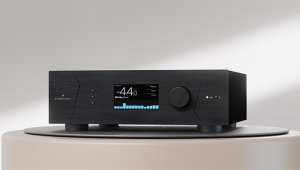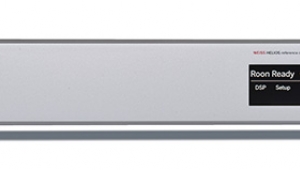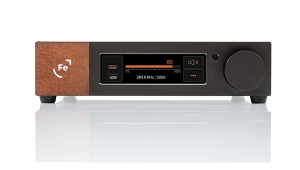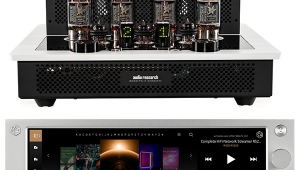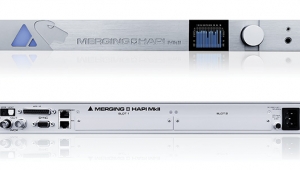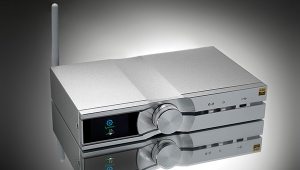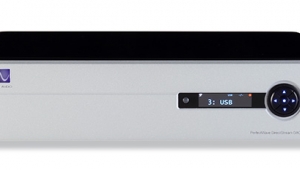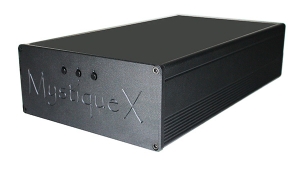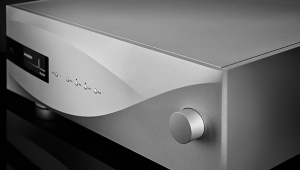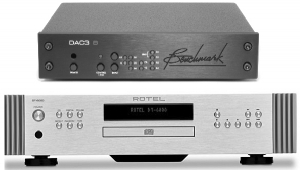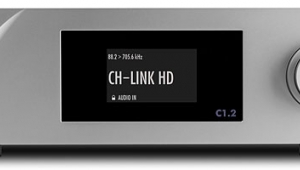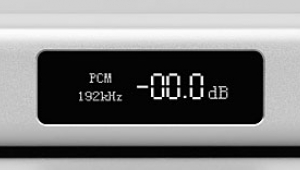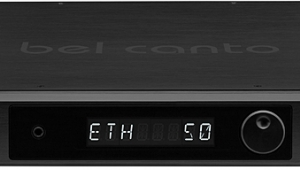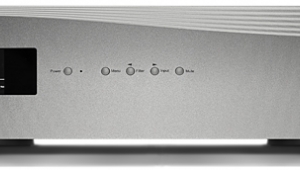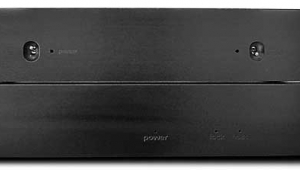| Columns Retired Columns & Blogs |
Weiss Medea D/A processor Page 3
All meaningful comparisons were based on coax S/PDIF connection via the Illuminati D-60, as TosLink obscured many distinctions, particularly in the bass. I preferred to use the balanced outputs with the High output-level setting, since that permitted me to reduce the gain in the preamp and take advantage of the Medea's very low level of noise. I could confirm that preference with my ear to the speakers, but it was less than obvious from the listening position. Nonetheless, the Medea seemed quieter and more dynamic with this setting. Lest you suspect that this put the other DACs at a disadvantage, they—particularly the MSB—had output levels much heftier than normal; I always readjusted the system gain to equalize listening levels.
The MSB had just a bit more presence and proximity than the Medea, and more than was absolutely ideal in my setup—as if the tilt in the male vocal range noted above had been corrected. Although this character was much less noticeable than with, say, the PS Audio HCA-2 power amp, it was a recurring distinction between the DACs. The remarkable—and, at $1200, remarkably priced—Musical Fidelity A324, too, seemed a bit lightweight compared to the Medea, but that's a consequence mostly of its inability to match the Medea's prodigious low end. The MF also showed a little bit of graininess, but only in direct comparison to the Medea.
Overall, the MF A324 was not outclassed by the other pricey DACs. One could argue that it would be the best investment, freeing up thousands for music, other equipment, or simply stuffing under the mattress in this parlous economy.
The Mark Levinson No.360s, directly out of the shipping carton, was almost indistinguishable from the Medea. If anything, it offered an even wider soundstage, though not a deeper one. While I formed the impression that the Levinson was somewhat warmer-sounding than the Medea, I could not confirm that reliably with a level-matched comparison. I preferred the Medea to the recently arrived Levinson in its revelation of such things as soft, distant cymbals and offstage sounds, but that might change as the ML continues to break in.
Conclusions
From the first turn-on (sic), the Weiss Medea D/A converter was the epitome of clarity and balance, and totally devoid of any digital nasties not the fault of the source. Independent of comparisons, the Medea impressed me with newly discovered solidity and definition in the bass, a smooth, full presence in the midrange, and silky, extended highs. Through the Medea, my CDs, DADs, and DVDs sounded as or more satisfying than they ever had.
The Medea was clearly superior to the DACs built into my three digital sources. The improvements varied, but typically took the forms of: 1) tighter, more potent bass; 2) greater vocal presence, particularly with male voices; and 3) a deeper soundstage with less highlighting of treble instruments.
No one component can define the relative merits of high-end vs professional audio components, but Weiss's Medea showed me that true quality is equally at home in both categories. I found nothing to criticize about the sound of the Medea with any of the hardware and software sources I tried. That doesn't mean that it's perfect, only that I haven't heard anything better. It was always the one I chose to use whenever a new CD arrived. This DAC ratchets up my anticipation for a digital interface standard for SACD and DVD-Audio.
Before running out and ordering a Medea, readers should consider their systems, their degree of satisfaction with those systems, and the relative values of first-rate DACs. Some may demand a more engaging sound, whether for reasons of personal taste or because their present system needs the juice. Those who already have very good digital components might gain more overall enjoyment by upgrading other components before indulging. Some may simply find the small but satisfying superiority of the Medea over the much less expensive Musical Fidelity A324 a poor use of limited resources. But if your system already pushes the envelope, the Medea could push you past another sound barrier.
- Log in or register to post comments
